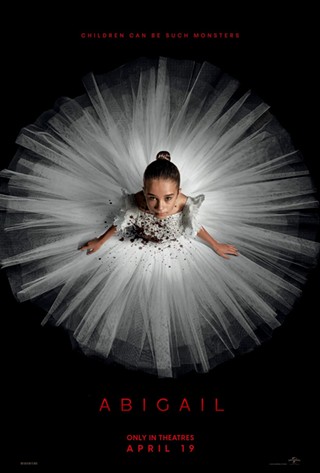Retired professor Remy (Remy Girard) is dying of cancer, bemoaning the fact that he can no longer screw around. From his hospital bed, he continues to criticize the government, his long suffering ex-wife (Dorothée Berryman) and reluctant son Sebastian (Stéphane Rousseau), a successful businessman who puts life aside to assist his father in his last days.
After pulling some strings, Sebastian manages to secure an entire floor of a hospital for his dying dad. (Yeah, right.) Remy is apparently in a lot of pain (though Girard's performance fails to show it much), so Sebastian goes to the cops looking for help in securing some good heroin. (Yeah, right, again.) His search for drugs eventually leads to the daughter of an ex-lover (Marie-Josee Croze), whom he pays to administer the heroin and keep his pops company.
Along the way to the final roundup, Remy flies on drugs and chats with old colleagues for a series of annoying conversations on the state of world affairs. This provides for a reunion of characters from the first film and lots of pretentious dialogue. Arcand perhaps thinks that the diatribes he's given his characters are clever and acerbic, but most of the arguments put forth are shallow and pigheaded. There's not a likable character in this bunch, making it hard to become engaged in the melodramatic, slushy story.
Girard does what he can with a shallow role, while Rousseau fails to engage as Sebastian. He never conveys a true sense of why his character would go to such great lengths to appease his father. It's a performance that is, at best, one dimensional. Croze, however, looks to be a promising actress, even though the junkie-with-a-heart-of-gold role she's provided with is ludicrous.
The screenplay by Arcand is self-important and snobbish to the point of distaste. Big words are thrown around during political and social arguments, but most of these arguments never amount to anything. Sure, many banal conversations at dinner parties are much like the ones depicted in the film, but one gets the sense that Arcand was shooting for something of depth here, not necessarily total realism.
Many of the scenarios that are meant to be touching feel contrived and hackneyed. The film's dishonesty can be best summed up by a scene in which Sebastian pays former students of Remy's to visit his deathbed and make him feel that he amounted to something in their lives. Such an action feels totally improbable, yet Arcand tries to pass it off as "sweet."
Of course, the film does have its supporters. It's received many accolades, including that Oscar, and knowing that it made a big impression at the Cannes Film Festival, I went to this one looking for something profound.
What I got instead was a Disease of the Week movie trying to pass itself off as a meaningful work. The Barbarian Invasions is nothing special and not nearly 2003's Best Foreign Film. That honor should've gone to the likes of He Loves Me, He Loves Me Not or even the shocking, almost unbearably unpleasant Irreversible. At least those films felt original. This one gives off the sensation of an obnoxious partygoer who doesn't know when to shut the hell up.













